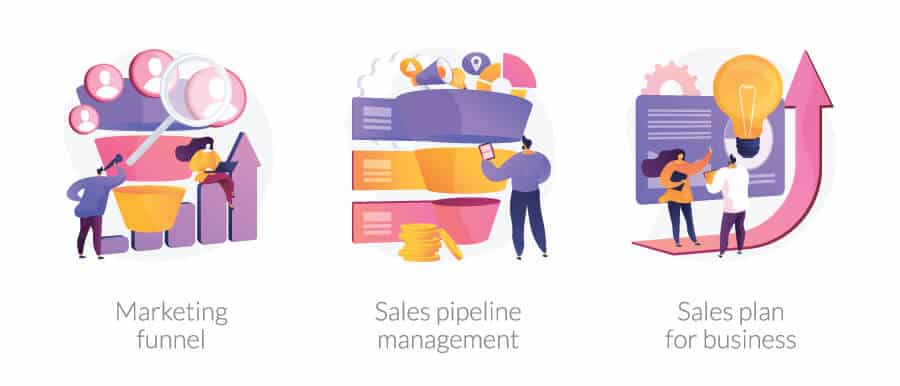12/10/2023

Introduction to entry-level sales jobs in startups
Working in sales at a startup can be an exciting and rewarding career path. Startups are known for their fast-paced, innovative environments, and entry-level sales roles provide a great opportunity to learn and grow. In this article, we will explore why you should consider working in sales at a startup, the skills and qualifications needed for these roles, and how to stand out in the competitive startup sales job market.
Why consider working in sales at a startup?
There are several reasons why working in sales at a startup can be a smart career move. Firstly, startups offer a unique opportunity to make a meaningful impact from day one. Unlike larger companies, where it may take years to see the results of your efforts, at a startup, your contributions are often immediately visible. This can be incredibly motivating and rewarding.
Secondly, startups provide a dynamic and entrepreneurial work environment. If you thrive on challenges and enjoy wearing multiple hats, a startup sales role may be perfect for you. In these roles, you will have the chance to work closely with cross-functional teams, collaborate on strategic initiatives, and have a direct influence on the company’s growth.
Lastly, startups often offer attractive compensation packages and equity options. While the base salary may be lower compared to established companies, the potential for rapid career progression and financial rewards can be significant. If you are willing to put in the effort and take calculated risks, working in sales at a startup can be a lucrative choice.
Skills and qualifications needed for entry-level sales roles
To excel in entry-level sales roles at startups, certain skills and qualifications are highly valued. Firstly, excellent communication skills are essential. You should be able to articulate ideas clearly, build rapport with customers, and effectively convey the value proposition of your product or service.
Secondly, a strong work ethic and resilience are crucial. Startup sales roles can be demanding, requiring you to reach and exceed sales targets in a fast-paced and ever-changing environment. The ability to handle rejection, stay motivated, and persevere through challenges is key to success.
Furthermore, having a proactive and entrepreneurial mindset is highly advantageous. Startups appreciate individuals who take initiative, think outside the box, and are willing to go above and beyond to drive results. Being adaptable and open to learning is also important, as startups often require employees to wear multiple hats and take on additional responsibilities outside of their core sales role.
Lastly, a basic understanding of marketing and technology is increasingly valuable in the startup sales job market. Familiarity with digital marketing strategies, social media platforms, and customer relationship management (CRM) software can give you an edge over other candidates.
How to stand out in the startup sales job market
Competition for entry-level sales jobs at startups can be fierce, but there are several strategies you can employ to stand out from the crowd. Firstly, research the startup thoroughly before applying. Gain a deep understanding of their product or service, target market, and competitive landscape. This will not only demonstrate your genuine interest but also allow you to tailor your application materials accordingly.
When crafting your resume and cover letter, highlight relevant experiences and achievements that showcase your sales skills and potential. Quantify your accomplishments whenever possible and provide concrete examples of how you have contributed to previous sales teams or projects. Additionally, consider incorporating any entrepreneurial or leadership experiences that demonstrate your ability to take initiative and drive results.
Networking is also a powerful tool in the startup sales job market. Attend industry events, join relevant professional groups, and connect with individuals who are already working in startup sales. Building relationships and seeking advice from experienced professionals can provide valuable insights, potential job leads, and even mentorship opportunities.
Finally, consider pursuing additional training or courses to enhance your sales skills. There are numerous online resources and platforms that offer courses specifically tailored to startup sales professionals. Investing in your professional development shows your commitment to continuous learning and can make you a more attractive candidate to potential employers.
Crafting an impressive resume and cover letter for startup sales jobs
Your resume and cover letter are your first opportunity to make a positive impression on potential employers. When crafting these documents for startup sales jobs, there are several key considerations to keep in mind.
In your resume, focus on relevant experiences and achievements that demonstrate your sales skills and potential. Use action verbs and quantify your accomplishments whenever possible. For example, instead of simply stating that you “increased sales,” highlight that you “increased sales by 20% within six months through targeted lead generation and effective negotiation strategies.”
Additionally, tailor your resume to the specific startup and role you are applying for. Highlight experiences or skills that align with their product or target market. This will show that you have taken the time to understand their business and are genuinely interested in the opportunity.
When writing your cover letter, make sure to convey your passion for sales and the startup industry. Share specific examples of how you have excelled in sales roles in the past, and explain why you are particularly interested in working for the startup you are applying to. Personalize your cover letter for each application, as generic and generic cover letters are often overlooked.
Remember to proofread both your resume and cover letter carefully, paying attention to grammar, spelling, and formatting. A polished and error-free application demonstrates attention to detail, a quality highly valued in sales roles.
Nailing the interview: Tips and tricks for success
Congratulations! You’ve made it to the interview stage. Now it’s time to prepare and ensure you make a lasting impression. Here are some tips and tricks to help you nail the interview for a startup sales job.
Firstly, research the company thoroughly. Familiarize yourself with their mission, values, products or services, and recent news or developments. This will not only demonstrate your genuine interest but also enable you to ask insightful questions during the interview.
Next, prepare compelling and concise responses to common interview questions. Practice articulating your achievements, sales techniques, and problem-solving abilities. Back up your answers with specific examples from your past experiences.
During the interview, be confident, enthusiastic, and authentic. Startups value individuals who are passionate about their work and can effectively communicate their ideas. Showcase your interpersonal skills by actively listening, maintaining eye contact, and asking thoughtful questions.
Don’t forget to highlight your sales skills and results. Discuss specific sales targets you have met or exceeded, strategies you have implemented to drive sales growth, and any awards or recognition you have received for your sales achievements. Demonstrating your track record of success will make you a compelling candidate.
Lastly, follow up with a thank-you email or note after the interview. Express your appreciation for the opportunity and reiterate your interest in the role. This small gesture can leave a positive impression on the interviewer and set you apart from other candidates.
Networking and building relationships in the startup sales industry
Networking is a critical component of success in the startup sales industry. Building relationships with professionals in the field can open doors to new opportunities, provide mentorship and guidance, and help you stay updated on industry trends. Here are some strategies to effectively network in the startup sales industry.
Start by attending industry events, conferences, and meetups. These gatherings provide an excellent opportunity to meet like-minded individuals and establish connections. Be proactive in introducing yourself, engaging in conversations, and exchanging contact information. Remember to follow up with individuals you meet and nurture those relationships over time.
Online platforms such as LinkedIn can also be valuable for networking. Join relevant professional groups, participate in discussions, and connect with individuals who are working in startup sales. Engage with their content, share your insights, and offer assistance whenever possible. Building a strong online presence can help you establish credibility and expand your network.
Additionally, consider seeking out mentorship opportunities in the startup sales industry. A mentor can provide guidance, share their experiences, and help you navigate your career path. Look for individuals who have achieved success in the field and reach out to them with a thoughtful and personalized message explaining why you admire their work and would value their mentorship.
Remember, networking is a two-way street. Be willing to offer assistance and support to others in your network. Share relevant articles or resources, introduce individuals who may benefit from connecting, and offer your expertise when appropriate. By building mutually beneficial relationships, you can create a strong and supportive network within the startup sales industry.
Resources and courses to enhance your sales skills for startups
Continuous learning and professional development are crucial for success in the startup sales industry. Fortunately, there are numerous resources and courses available to enhance your sales skills and knowledge. Here are some recommendations to consider:
- Online sales courses: Platforms such as Udemy, Coursera, and LinkedIn Learning offer a wide range of online courses specifically tailored to sales professionals. These courses cover topics such as prospecting, negotiation, closing deals, and building relationships. Look for courses with high ratings and positive reviews to ensure quality content.
- Sales books and podcasts: Reading sales books and listening to podcasts can provide valuable insights and strategies from industry experts. Some highly recommended books include “To Sell Is Human” by Daniel Pink, “The Challenger Sale” by Matthew Dixon and Brent Adamson, and “Influence: The Psychology of Persuasion” by Robert Cialdini. Podcasts like “The Salesman Podcast” and “The Advanced Selling Podcast” are also worth exploring.
- Sales conferences and webinars: Attend sales conferences and webinars to learn from industry leaders and gain exposure to the latest trends and strategies. These events often feature keynote speakers, panel discussions, and networking opportunities. Keep an eye out for conferences specific to the startup sales industry, as they may offer unique insights and perspectives.
- Online job boards communities and forums: Search for new sales jobs at salesroles.com and Join online communities and forums where sales professionals share their experiences, ask questions, and provide advice. Platforms like Reddit, Quora, and LinkedIn Groups can be excellent sources of information and networking opportunities. Engage in discussions, ask questions, and contribute your insights to enhance your own learning.
Remember, investing in your professional development is an ongoing process. Stay curious, seek out new learning opportunities, and apply what you learn to your day-to-day work. By continuously improving your skills and knowledge, you can position yourself as a top candidate for startup sales roles.
The benefits and challenges of working in sales at a startup
Working in sales at a startup offers a unique set of benefits and challenges. It’s important to consider both aspects before pursuing a career in this field.
One of the primary benefits of working in sales at a startup is the potential for rapid career progression. In a startup environment, there are often fewer layers of hierarchy, allowing for faster decision-making and increased responsibility. If you are ambitious and eager to take on new challenges, a startup sales role can provide the platform for accelerated growth.
Additionally, startups often offer attractive compensation packages and equity options. While the base salary may be lower compared to established companies, the potential for financial rewards can be significant. As the company grows and succeeds, your equity stake can become increasingly valuable. This can be a compelling incentive for individuals who are willing to take calculated risks.
However, it’s important to note that working in sales at a startup can also be demanding and challenging. Startups operate in highly competitive markets, and sales teams are under constant pressure to meet aggressive targets. Long hours, high expectations, and frequent changes in strategy are common in this dynamic environment. It requires resilience, adaptability, and a strong work ethic to thrive in a startup sales role.
Moreover, the uncertainty and inherent risk associated with startups can be a challenge. While startups offer tremendous opportunities for growth, they also face a higher risk of failure compared to established companies. It’s important to carefully evaluate the stability and potential of the startup before committing to a sales role. Conduct thorough research, analyze market trends, and consider the company’s funding and growth prospects.
Conclusion: Taking the first steps towards a successful career in startup sales
In conclusion, landing entry-level sales jobs in thriving startups can be a rewarding and fulfilling career path. By understanding the unique benefits and challenges of working in sales at a startup, honing your sales skills, and building a strong network, you can position yourself as a top candidate in the competitive startup sales job market.
Remember to craft an impressive resume and cover letter tailored to each specific startup, prepare thoroughly for interviews, and continuously invest in your professional development. Be proactive, adaptable, and passionate about your work, and you will be well on your way to unleashing your potential and building a successful career in startup sales.
CTA: Start your journey towards a successful career in startup sales today by implementing the strategies and tips outlined in this article. Remember, it’s not just about landing a job – it’s about making a lasting impact and growing alongside a thriving startup. Take the first steps towards unleashing your potential and join the exciting world of startup sales!
Read more




















